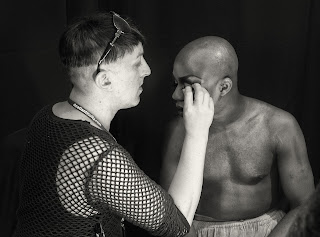My Fieldwork
Field Experiences:
1.Guatemala & Yucatan
2.Belize
3.Beach Channel (LI) & New Orleans
4.USA Communities
-Working in familiar and unfamiliar environments
-Working as an outsider/insider
-establishing rapport
-sticky situations
· Ethics
- informants
- academic community
- funders
· The problem with power and the researcher’s “gaze”
· Protecting your informants: remembering who you work for
· Jealousies and disturbances
-Combatting “Observer’s Bias” (GUMPERZ)
· Group interviewing
· The “aside”
· Creating relationships of trust
-Recording and writing up
Experiences in the field—
· Keeping the peace
· Catch 22s
· The epiphany of the “other”
· Between Class clown to town idiot
Emic perspective—getting at voice/person/identity
· Using personal narrative
· Biography and life history
· Validating memory
· Validating the individual experience
Choosing a focused theme from the journals/notes etc
· Keeping it “small”
· Topics are discovered through the process of interaction with the community being studied
· Topics should have ethnographic examples available and are important to the cultural group being studied
· Topics should include data that can be collected (principle informants should be identified)
· Topics should attempt to shed light on a research question
(1) What is the temperature matrix of Mayan medicinal plants and how are these indicated in Yucatec & Cakchiquel Maya according to traditional healers
(4) How do the Garifuna of Honduras remember their pilgrimage from St. Vincent to Coastal Honduras: an ethnohistory through memory.
(3) Student’s Experiences with embodied practice as mediated by culture: How does culture create self perception of one’s body and how is one’s body a reflection of the culture?
What the hell do I do?
- I talk to people and directly elicit information. These questions are open ended and interviews can be hours long. This all has to be transcribed and analyzed.
- I go to performances and take fieldnotes, not just about the performance, but about the cultural scene in which the performance is enacted. This all must be transcribed. and analyzed.
- I note every aspect of a culture and what these objects and beliefs and behaviors are, and try to discern the MEANING and RULES behind them
- I scour historical sources and interview people about culture history to try to contextualize a culture and look at their historical importance and evolution. (this has to be transcribed, interviews, sources, etc. and analyzed!)







































































Comments
Post a Comment